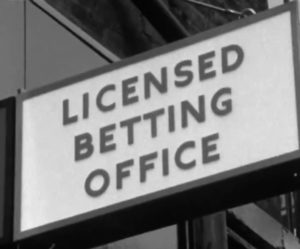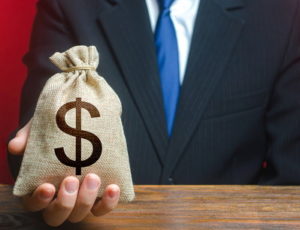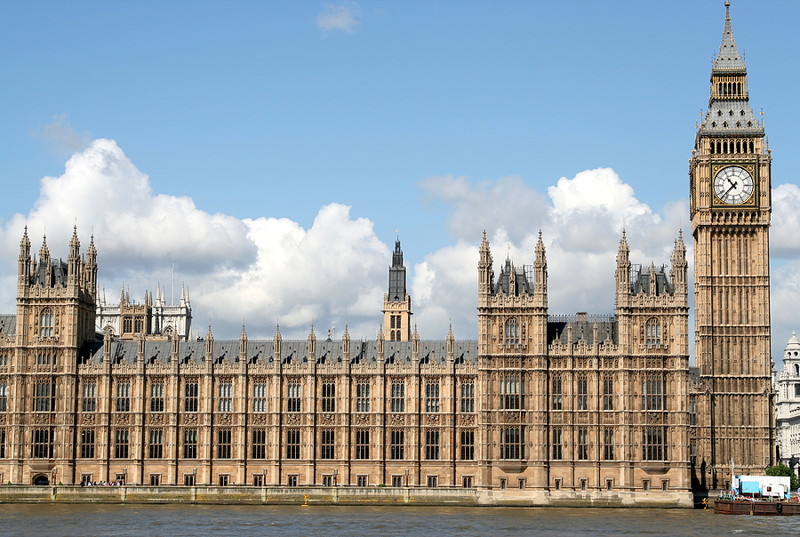Gambling companies have long been a part of the UK industry, and as it happens, the country has one of the most liberal gambling industries in the world. Yet it wasn’t always like this. In fact, back in the early days of bookmaker shops, the gambling scene was not anywhere near as free and capable as it is today. And it was only due to a significant amount of lobbying from both gambling companies and avid bettors that bookies became legal in the United Kingdom in 1961.
Upon those shops opening their doors, members of the public were able to walk inside and place a bet legally, meaning that nothing had to take place underground in this area. People were no longer spending their money (and potentially having it stolen by unscrupulous, illegal bookies) around dark corners and out of sight. For that reason, many people spoke of the legal betting shops as being a good thing. The BBC News Extra even dropped in on various brand-new bookies at the time and spoke to various punters and people on the street, gathering their thoughts on the legalisation and opening of such shops. The general consensus was that bookmaker shops were a great thing as it took the activity off the streets and into official, legal shops.
But while lobbying to get betting shops set up in a legal scenario back in the 60s was something that took place, how much of this goes on today? Are gambling companies still lobbying for their own causes and against other changes? Obviously, things in today’s gambling world are very different, with companies involved in the industry making a lot more money than they ever did back in the 60s, 70s and 80s. The influence of online and mobile betting has definitely had an effect on the profits that such companies experience every year.
This had led to them becoming much bigger in size, with many companies going global with their efforts. In the same vein, various gambling companies have combined their brands so as to create massively powerful conglomerates. One of the most recent takeovers came with 888 opting to buy William Hill International for a huge sum of £2.2 billion. And despite this meaning that 888 gets to take over control of the UK betting shops under the William Hill name, most gambling companies experience the majority of their revenue in the online scene.
How much lobbying actually takes place in this day and age when it comes to the gambling industry? We take a look into this to try and find out more about how these companies operate.
A Brief History of Gambling Lobbying in the UK
 If you look back to the late 19th century, gambling was a popular pastime with the upper classes. Card games were frequently partaken in at establishments that were popularly labelled as casinos, although evangelical reform movements aimed to stop such activities within these places. Bookmakers were able to speed up their betting cycle at the time by utilising telegraphic results from racetracks so that city workers across the UK could make multiple wagers on race day and then either absorb their losses or take their winnings and place more bets in a short timeframe.
If you look back to the late 19th century, gambling was a popular pastime with the upper classes. Card games were frequently partaken in at establishments that were popularly labelled as casinos, although evangelical reform movements aimed to stop such activities within these places. Bookmakers were able to speed up their betting cycle at the time by utilising telegraphic results from racetracks so that city workers across the UK could make multiple wagers on race day and then either absorb their losses or take their winnings and place more bets in a short timeframe.
Bookmakers essentially set up a base in a friendly local pub, would then hire runners to inform on the odds at the hour, then collect bets and pay off the winners of such. Lookouts were employed to watch for any oncoming policemen. The Street Betting Act that was introduced in 1906 operated as a counterattack on this, introduced by the moralistic middle-class people who didn’t appreciate such a form of gambling. Bets were small, but enjoyment remained high, even though the police were reluctant to enforce the act. Some even took a payoff to look the other way, and working class communities heavily supported bookies providing entertainment and employment.
It wasn’t until 1960 that The Betting and Gaming Act introduced legal off-course betting, and turnover from that increased by 154% by the following year, with over 13,000 licences being handed out for betting shops in the United Kingdom. The aim through that act was to do away with archaic, restrictive and very often inconsistent laws surrounding the practice of gambling and providing such services.
From January of 1961, gambling for small sums on options like bridge and other games of skill was also made legal. Pubs were also enabled to introduce slot machines to their floors. It was also the idea of the government that introducing this act would take gambling off of the streets, which was deemed a success after the opening of the many betting shops.
Yet the police had their own hand in changing gambling laws in the UK, especially in relation to The Street Betting Act of 1906. Public evasion and disobedience of the act had been widespread and heavily persistent, and this caused a big problem for the police. In enforcing the law, they became ridiculed and criticised for being discriminatory against specific classes. Yet the legalisation of betting shops was not considered to be the right way to go at this time.
Attempts to prohibit gambling throughout the years since then have usually always been rarely the will of the general public. Instead, it tends to be a specific group wishing to control people and their intentions, with them labelling gambling as a vice or an exhibition of loose morals.
It was only due to the fact that The Street Betting Act was pushing gambling activity into the underground scene that gambling companies started lobbying to have it legalised and regulated. And thus, legal betting shops were introduced so as to bring some sort of substance and regulation to it.
Companies Utilising Lobbying Tactics Today
 Considering how large the UK gambling scene is today, it would seem like the industry doesn’t need to do any lobbying to remain accessible and popular. That’s not strictly true though, because as was uncovered recently, Members of Parliament have also found themselves being tangled up in a web relating to various big-name gambling companies.
Considering how large the UK gambling scene is today, it would seem like the industry doesn’t need to do any lobbying to remain accessible and popular. That’s not strictly true though, because as was uncovered recently, Members of Parliament have also found themselves being tangled up in a web relating to various big-name gambling companies.
In July of 2021, The Guardian reported on nine different MPs accepting free tickets to attend Euro 2020 games, and those tickets and all associated hospitality services were provided by gambling brands. Seven Conservative MPs and two Labour backers accepted the free hospitality packages, which were all worth thousands of pounds. The group of attendees included Esther McVey, who is the former work and pensions secretary, and Blackpool South MP Scott Benton, who acquired around £8,000-worth of sporting hospitality from various gambling companies.
McVey accepted a package from Entain worth £3,457 so that she could attend the England v Denmark game, which was also taken by the Labour MP Toby Perkins, a shadow skills minister. Mark Tami, an opposition whip, accepted a package from Power Leisure bookmakers to see the home team face Germany in the same tournament.
Oddly enough though, the gambling and betting industry companies hosted the MPs at these events while the government was tackling the restructuring of the country’s Gambling Act 2005. It has been said that there will be various restrictions included in the whitepaper that is set to be released in due course. And while some anti-gambling MPs raised their concerns over gambling companies advertising too much during the Euro 2020 tournament, the ones accepting hospitality packages were not of the same mindset. Essentially, it was decided by many that the betting industry was putting on a charm offensive, trying to get the Parliamentary members on their side.
Indeed, obtaining freebies from gambling companies would possibly be enough to make any MP involved in such think that tougher restrictions would also result in them no longer being able to receive such perks.
Matt Zarb-Cousin, who is the director of Clean Up Gambling spoke of it being no surprise that the gambling industry is engaging in a certain sort of lobbying where MPs are concerned. “Thankfully the vast majority of MPs are in favour of gambling reform”, he said, “but legislators should think twice about accepting hospitality from a sector that derives the majority of its profits from people experiencing harm”.
Laurence Robertson, a Tory MP for Tewkesbury, accepted three separate freebies from betting companies for Euro 2020, Royal Ascot and Sandown events, while another Tory MP Philip Davies declared freebies from Entain. Both MPs have been vocal about their support for the gambling industry, having previously been hosted by betting companies in a similar way.
How can it be said that the very MPs who are involved in the committees to look over the gambling industry and create new legislation are acting in an unbiased way. Obviously, anyone accepting a hospitality package worth thousands of pounds from a betting company is likely to lean in favour of them being less restricted by new laws. Could this be considered as a successful form of lobbying by the gambling industry?
Betting Industry Vocal About Law Changes
 Without a doubt, operators from within the gambling scene have been very vocal about their dislike of new legislation being introduced soon. It’s not so surprising either, considering that the laws are supposedly set to become tougher on these companies. Why would they be in favour of such change when it is their revenue that is at risk from such adjustments?
Without a doubt, operators from within the gambling scene have been very vocal about their dislike of new legislation being introduced soon. It’s not so surprising either, considering that the laws are supposedly set to become tougher on these companies. Why would they be in favour of such change when it is their revenue that is at risk from such adjustments?
You only need to look back a couple of years when it was announced that fixed odds betting terminals would have their maximum bets reduced to £2 in the UK. Betting brands claimed that within their land-based shops, they took the most income from those machines, and that reducing the maximum bet would have a significant effect on their revenue, potentially forcing some shops to close their doors for good. And indeed, William Hill experienced a £720 million loss following the crackdown on the betting machines. It was also this that was noted as the reason for the company closing down 700 of its high street betting shops, too.
With such outcomes from changes in the law, is it any wonder that gambling companies would be lobbying against additional adjustments considering they are likely to be tougher and much more restrictive?
Indeed, it can be said that the companies are slightly scared over the potential changes to be introduced to the UK. Ahead of the planned review of gambling laws, some campaigners have accused companies of ramping up their efforts to form friendships with MPs. Towards the end of 2021, it was reported that the aforementioned Tory MP Laurence Robertson had “warned ministers” not to crack down on gambling. Yet it was then discovered that he was also paid £24,000-a-year for 10 hours of work per month. And that funding came directly from the betting industry body, the Betting and Gaming Council (BGC).
Records show that Robertson officially spoke on the Government’s gambling review on at least three occasions. On each meeting, he spoke out against the introduction of those tougher laws. He would later deny any sort of conflict of interest, insisting that his actions have always been totally transparent.
Yet it is considered to be against the rules for MPs to engage in lobbying of this kind. Because Robertson receives £2,000 per month from the BGC for his 10 hours of work, it could be determined that he is actually employed by them and lobbying for their cause. Owen Paterson, an MP for North Shropshire, was found to have broken lobbying rules by meeting with officials at the Food Standards Agency and ministers at the Department for International Development on a number of occasions. He also utilised his office at parliament as well as stationary from there for consultancy work, while failing to declare his interests in some meetings.
MPs are officially forbidden from accepting money to raise issues in the House of Commons or within the government. The code of conduct that all Members of Parliament have to adhere to dictate that there should be no conflicts of interest between their personal interests and public interest. Can it be said that the cases of Paterson and Robertson are different? And what’s more, shouldn’t the BGC and other gambling companies involved in this type of lobbying be held accountable for, too?

